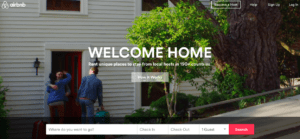News
Danes will be forced to submit Airbnb income
This article is more than 9 years old.
Majority in Parliament in favour of making shared economy law change

Shared economy experiences like Airbnb are becoming increasingly popular in Denmark (photo: Valeriesophie)
It’s looking increasingly likely that a majority in Parliament will approve measures that will alert the authorities to income gained from shared economy services such as the private property rental service Airbnb.
Enhedslisten will today submit a proposal in Parliament that should mean the tax authority SKAT will in the future automatically be alerted to income generated from shared economy services.
“I’m a big fan of the shared economy services, particularly because it is key to the green transition in society,” Rune Lund, Enhedslisten’s spokesperson on tax issues, told TV2.dk.
“But shared economy services mustn’t be a loophole to avoid paying tax. This is very relevant, especially due to the fact that we expect to see a great increase within the shared economy industry within the next few years.”
READ MORE: SKAT looking into tax changes for Airbnb, Uber and other shared economy services
Growing business
Aside from Enhedslisten, Socialdemokraterne, Socialistisk Folkeparti and Konservative have backed the proposal, while Venstre and Dansk Folkeparti have also been positively inclined to the idea in the past.
According to a report from Nordea, 9 percent of Danes took an active part in the shared economy industry last year.
As the rules stand, it’s up to the individual renter to submit their earnings to SKAT.










































